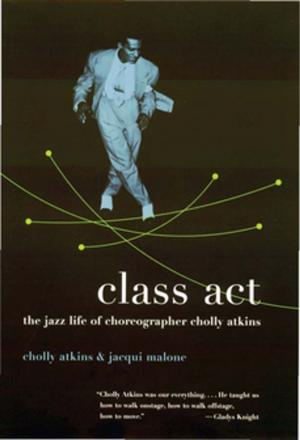The Education of Ronald Reagan
The General Electric Years and the Untold Story of His Conversion to Conservatism
Nonfiction, History, Americas, United States, Biography & Memoir| Author: | Thomas Evans | ISBN: | 9780231511070 |
| Publisher: | Columbia University Press | Publication: | December 5, 2006 |
| Imprint: | Columbia University Press | Language: | English |
| Author: | Thomas Evans |
| ISBN: | 9780231511070 |
| Publisher: | Columbia University Press |
| Publication: | December 5, 2006 |
| Imprint: | Columbia University Press |
| Language: | English |
In October 1964, Ronald Reagan gave a televised speech in support of Republican presidential nominee Barry Goldwater. "The Speech," as it has come to be known, helped launch Ronald Reagan as a leading force in the American conservative movement. However, less than twenty years earlier, Reagan was a prominent Hollywood liberal, the president of the Screen Actors Guild, and a fervent supporter of FDR and Harry Truman. While many agree that Reagan's anticommunism grew out of his experiences with the Hollywood communists of the late 1940s, the origins of his conservative ideology have remained obscure.
Based on a newly discovered collection of private papers as well as interviews and corporate documents, The Education of Ronald Reagan offers new insights into Reagan's ideological development and his political ascendancy. Thomas W. Evans links the eight years (1954-1962) in which Reagan worked for General Electric—acting as host of its television program, GE Theater, and traveling the country as the company's public-relations envoy-to his conversion to conservatism.
In particular, Evans reveals the profound influence of GE executive Lemuel Boulware, who would become Reagan's political and ideological mentor. Boulware, known for his tough stance against union officials and his innovative corporate strategies to win over workers, championed the core tenets of modern American conservatism-free-market fundamentalism, anticommunism, lower taxes, and limited government. Building on the ideas and influence of Boulware, Reagan would soon begin his rise as a national political figure and an icon of the American conservative movement.
In October 1964, Ronald Reagan gave a televised speech in support of Republican presidential nominee Barry Goldwater. "The Speech," as it has come to be known, helped launch Ronald Reagan as a leading force in the American conservative movement. However, less than twenty years earlier, Reagan was a prominent Hollywood liberal, the president of the Screen Actors Guild, and a fervent supporter of FDR and Harry Truman. While many agree that Reagan's anticommunism grew out of his experiences with the Hollywood communists of the late 1940s, the origins of his conservative ideology have remained obscure.
Based on a newly discovered collection of private papers as well as interviews and corporate documents, The Education of Ronald Reagan offers new insights into Reagan's ideological development and his political ascendancy. Thomas W. Evans links the eight years (1954-1962) in which Reagan worked for General Electric—acting as host of its television program, GE Theater, and traveling the country as the company's public-relations envoy-to his conversion to conservatism.
In particular, Evans reveals the profound influence of GE executive Lemuel Boulware, who would become Reagan's political and ideological mentor. Boulware, known for his tough stance against union officials and his innovative corporate strategies to win over workers, championed the core tenets of modern American conservatism-free-market fundamentalism, anticommunism, lower taxes, and limited government. Building on the ideas and influence of Boulware, Reagan would soon begin his rise as a national political figure and an icon of the American conservative movement.















